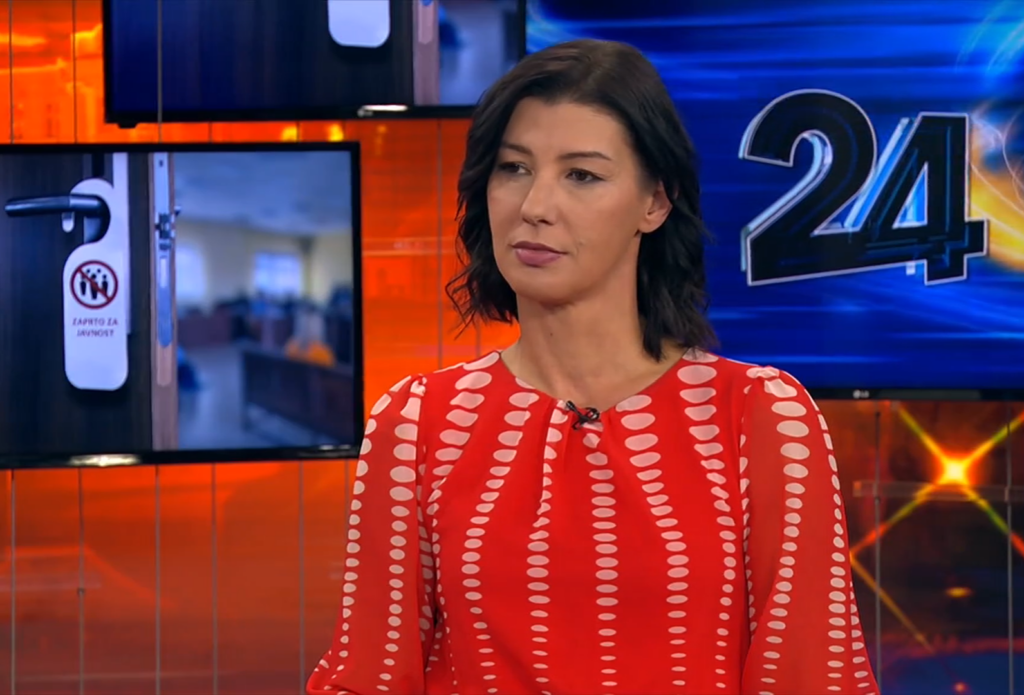The predictions that the transitional left would try to use the mandate of the Robert Golob government to increase its grip on our democratic society are coming true. If the National Assembly approves the proposed amendments to the Courts Act and the Judicial Service Act, the public will no longer be able to access final judgments, nor will it be able to find out anything about judges’ salaries and the disciplinary proceedings against them. The two amendments to the law have sparked public outrage, with the Minister of Justice Dominika Švarc Pipan saying in a recent media appearance that the announced changes were written in a clumsy way or were simply misunderstood.
So let us look at the proposed controversial eighth paragraph of Article 117 of the Courts Act, which the Minister says is merely awkwardly worded. It reads: “Rulings and decisions which are not published on the website of the judiciary shall not be considered as publicly available information …”. The wording does not imply that the bill is “awkwardly” worded or “misunderstood”, but rather that the judiciary, in cooperation with the Social Democrats party (Socialni demokrati – SD), is trying to hide the work of the judiciary from the public. Having had to face some heavy criticism, even in circles traditionally sympathetic to the Social Democrats, they now want to cover up their attempt to reduce the transparency of the judiciary as best they can.
Information Commissioner Mojca Prelesnik, who belongs to the left-wing cadre pool, also said that the proposal is unacceptable: “The draft law on courts, unfortunately, deviates significantly from the already achieved standards of transparency and is not in line with the law on access to public information. Above all, it does not take into account Slovenia’s commitments made by ratifying the Council of Europe Convention on Access to Official Documents, the so-called Tromsø Convention.”
Dr Toplak: Secrecy does not lead to trust in the judiciary
Constitutional lawyer Dr Jurij Toplak also responded to the announced changes – he explained on the 24ur news programme that “all judgments should be published online, both final and non-final. For some judgments, it is right that they are anonymised to the extent that one cannot identify the parties to the proceedings. For example, in the case of minors. This is not difficult. Judgments are already digitised in the courts anyway. However, there is a tendency among some in the leadership of the ministries and the judiciary to advocate hiding judgments from the public and making it as difficult as possible for the public to access said judgments. Accordingly, a few years ago, the Supreme Court already issued a judgment that made it very difficult for the public to access the rulings. In other words, they want judges to decide why and whom to imprison or convict in secret from the public. At the same time, they would like to boast that they write ‘IN THE NAME OF THE PEOPLE’ on the judgments, but they would not allow the people to see these judgments or would make it very difficult for the people to see these judgments’.”
Toplak also stated on the programme that it is important for the public to be aware that for three, four, even five years now, some people in Slovenia have been advocating that the judgments be secret, and when this is discussed in public, there are rationalisations such as “there was a mistake”, “you didn’t understand”, and so on.
Will they also hide their salaries?
On the show, the Minister of Justice also defended the attempt to hide judges’ salaries. She said that under the new proposal, salary data would remain public, while the bill would make secret the data used to calculate salaries. The public would no longer be allowed to know how long an employee had been on annual leave, study leave, or absent for childcare. Toplak also commented on that, saying: “It is important that judges’ salaries are public, just like the salaries of everyone else who is paid from the state budget, so that we know where our money is going, so that we taxpayers can control how the money is spent. It is a matter of fairness that the public can assess the data in this way. This builds public confidence in state bodies and the judiciary. If someone were really advocating that salaries should not be public, that would be a great shame. It would be right for taxpayers to know who, especially if it is someone in power, is advocating such a thing.”
Ž. K.


